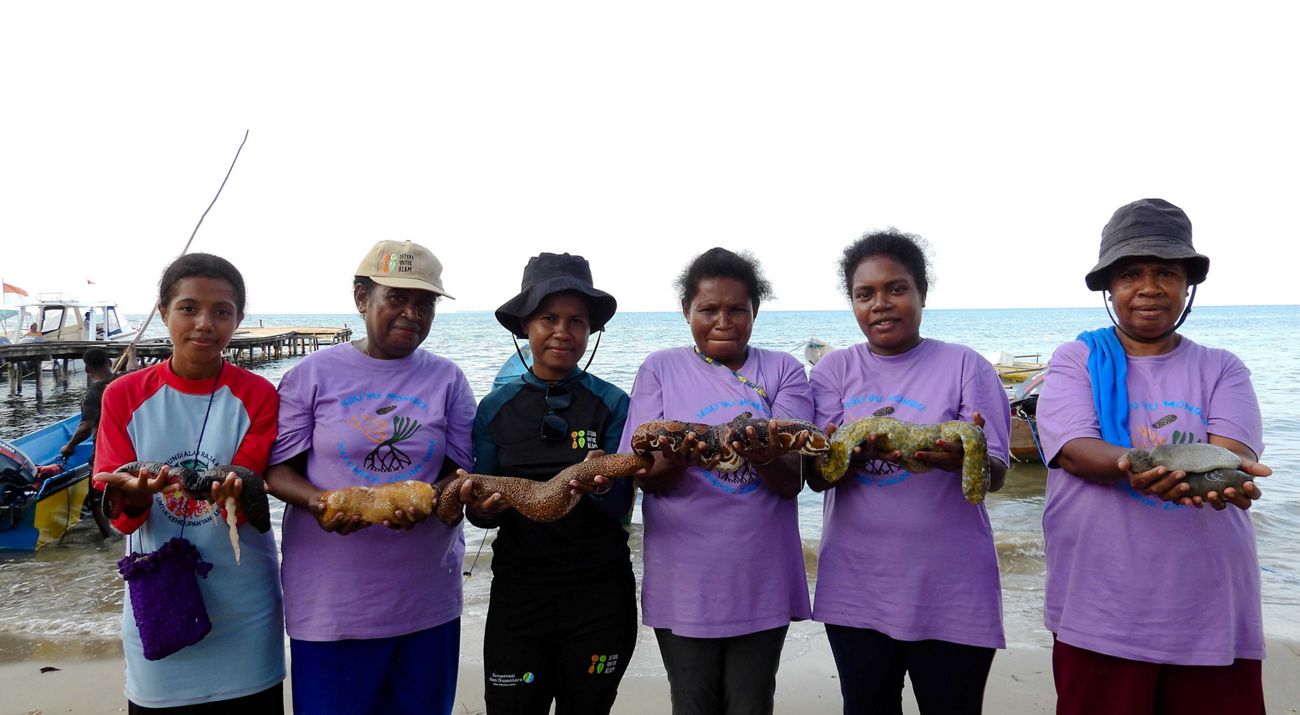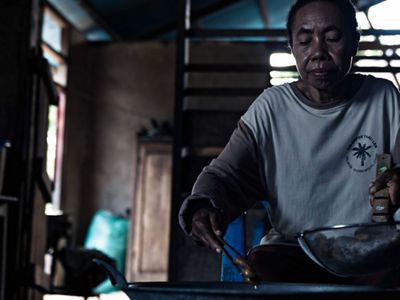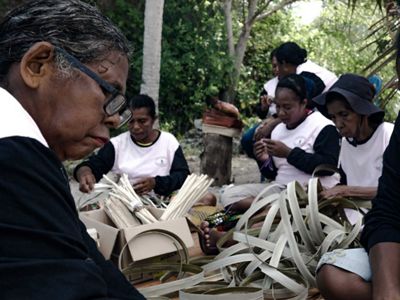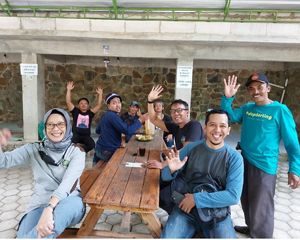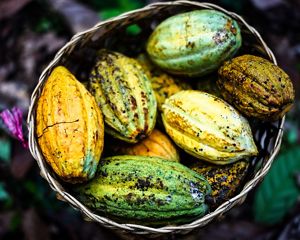That morning, Mama Sherly and other members of the Zakan Day group were prepared at Kampung Salafen Beach. Some long boats are lined up there. A few moments ago, the Zakan Day group carried out worship at the Salafen Imanuel Church as one of the series in the opening procession of Sasi.
Furthermore, the people of Kampung Salafen and the Zakan Day group used a long boat to get to the traditional ceremony to open Sasi in the sea, followed by pulling out the Sasi region marker board in three locations. The traditional ritual led by Agustinus Day as the Chairman of the Sub-Suku Matbat Customary is carried out to request permission from the ancestors so that the Sasi harvest is abundant and brings blessings.
Read: Why Orangutans?
On November 15, 2023, the Sasi Zakan Day Women's Group from Salafen Village, North Misool District, Raja Ampat Regency, carried out Open Sasi Laut after being closed one year ago, precisely September 29, 2022. After being officially opened, the Zakan Day group and the Salafen community could harvest The results of Sasi in the form of sea cucumbers for eight days; then, the Sasi region will be closed again until next year.
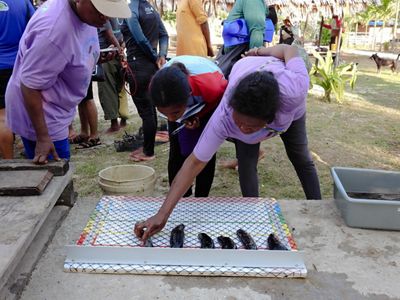
Sasi is one of the customary practices to manage natural resources on an ongoing basis, both on land and sea, and it is still applied in Maluku and Papua. Management of the Sasi area is carried out with the principle of opening and closing the management area within a certain period. This tradition forbids taking natural resources for anyone before Sasi is opened.
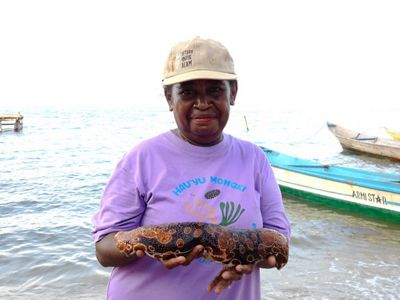
Traditionally, the management of the Sasi region is carried out by men. However, in some villages on Misool Island, Raja Ampat, including Salafen Village, the Sasi region is managed by a group of women, namely Zakan Day. Consisting of 10 people, the Zakan Day group chaired by Serly Widya Dakam Day contains the Sasi region, covering an area of 497.85 hectares, including Tanjung Nilam to JE'i Kamku.
"Women must play an essential role in protecting nature. Continuing the Sasi tradition is one of our efforts to keep nature sustainable. In the process, the Zakan Day group also involves the younger generation so that the hope is that the Sasi tradition does not break up, "said Sherly, who is familiarly called Mama Sherly.
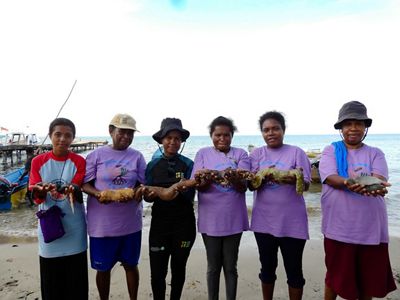
Another group of women in Salafen
In addition to the Sasi Zakan Day Women's Group, there are several other groups of women in Salafen Village, namely the Wan and the Ilen group. These women's groups play a role in crafts and food processing for alternative economies.
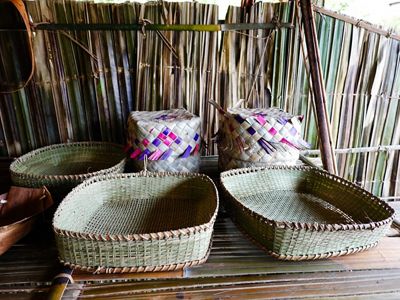
The Wan group is a group of woven women crafters chaired by Heidi Maria Rumfabe. The group of eight members produces traditional Papuan woven such as noken bags, betel nuts, hats, senates or mats, bamboo combs, and other craft arts. This woven product is a form of preservation of traditional Papuan culture and one of the livelihoods for members of the Wan group.
Similar to the Wan group, the mama in the Salafen village, who was skilled at processing sago into various snacks, formed the Ilen group. Ilen groups or processed sago groups try to pass down the hereditary tradition from their ancestors in creating culinary-based cuisine in the hands of Mama members of the Ilen group, sago which is a staple food for the people of Papua, processed into grilled sago, sago cake, coconut sago, sago porridge or ne porridge, and others.
"This sago is a daily staple food; if we do not form a sago group, the tradition will disappear. So, by making processed sago, we helped maintain the tradition of our ancestors. We hope that this group can survive and can be passed down to the younger generation, "said the treasurer of the Ilen Perolone Elwod group.
The products produced by the Wan and the Ilen groups are developed based on the wealth of natural resources available in the surrounding environment, and products are marketed to several areas around Misool.
Support the strengthening of the role of women
Yayasan Konservasi Alam Nusantara (YKAN) has been in Salafen Village since 2021. As the development partner of the Southwest Papua Provincial Government, it continues to support the strengthening of the role of women in conservation, one of which is through the Sasi tradition, which assists Sasi Management and is based on science for the Zakan Day group.
"Sasi " is a tradition that must be maintained because it is closely related to conservation activities. We also accompanied Zakan Day in managing Sasi appropriately to preserve marine life. That way, the benefits of the Sasi tradition can be felt continuously, "said Luke Rumetna, Senior Manager Bird's Head Seascape.
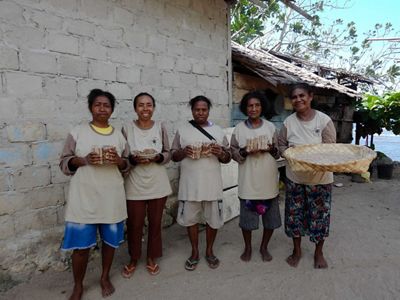
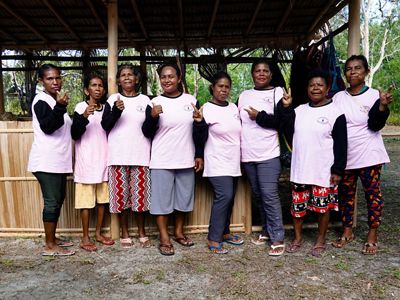
Against Wan and Ilen groups, it provides guidance to develop processed products with higher economic value by making product variations and product diversification in marketing. Which also offers financial training and helps facilitate a business license. In the future, it will encourage marketing from this woven craft and processed sago to Sorong and other areas.
With the support given, it is hoped that women in Salafen have a social position socially. They can act as housewives at home while working like men.


